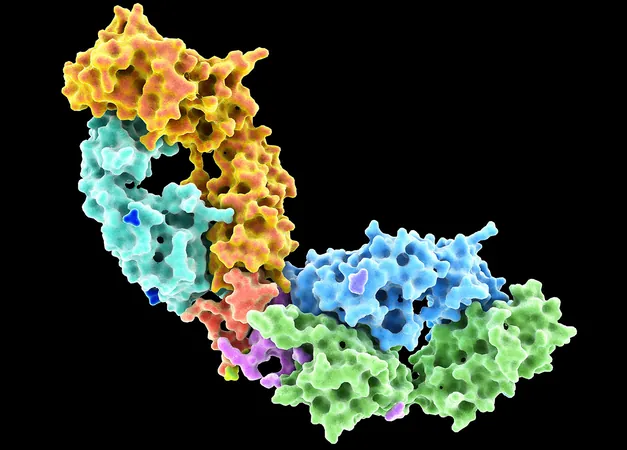
Revolutionary HIV Vaccine Research Unveils New Type of Antibody That Could Change the Game!
2025-01-17
Author: Yu
Groundbreaking Study by Scripps Research
In a groundbreaking study, scientists at Scripps Research have revealed that repetitive vaccinations against HIV can lead to the production of a unique class of antibodies that target immune complexes already associated with the virus. This important discovery, featured in the journal Science Immunology, opens up new possibilities for enhancing HIV vaccine efficacy.
Complex Immune Responses
Typically, vaccines introduce a harmless part of a virus to trigger an immune response, teaching the body how to recognize and fight off future infections. However, the latest research indicates that the body’s immune response to some HIV vaccines may be more complex than previously understood. Andrew Ward, PhD, a leading figure in this research, emphasizes the significance of these findings: "Understanding these responses could lead to smarter vaccine designs and immunotherapeutics. It’s an exciting step forward in fine-tuning antibody and vaccine-based strategies against HIV and other diseases."
Innovative Research Technique
The revelation originated from a pioneering technique known as Electron Microscopy-Based Polyclonal Epitope Mapping (EMPEM), which allows researchers to visualize exactly where antibodies attach to the HIV virus. Upon examining blood samples from animals that received multiple doses of an experimental HIV vaccine, the researchers found that a subset of antibodies did not directly target the viral components. Instead, they bound to immune molecules already on the virus's surface.
First Structural Characterization
Sharidan Brown, a graduate student and primary author of the study, noted, "We are the first to structurally characterize this kind of antibody in the context of HIV vaccination." This important revelation adds a new layer to our understanding of how the immune system responds to HIV vaccination.
Historical Context
Historically, it has been recognized that anti-immune complex antibodies can emerge when the immune system identifies existing antibodies binding to viral proteins. This results in a response that leads to the generation of new antibodies, including those that latch onto these complexes.
Further Research Findings
The research team further established in follow-up studies that these antibodies particularly arise between the second and third vaccine doses. "We showed that these antibodies exist, but how they influence the immune response remains uncertain," Brown remarked. While they might not directly neutralize the virus, these antibodies could potentially lead to larger immune complexes, enhancing immune responses against infected cells—a phenomenon that is not fully understood yet.
Future Research Directions
In future research, if it is determined that these antibodies hinder vaccine effectiveness, scientists could tailor vaccine designs to minimize this immune complex response, ultimately increasing the vaccines' capacity to neutralize HIV directly. "Even minor alterations between doses might create enough diversity to prevent the production of antibodies against antibodies," Brown suggested.
Broader Implications
Looking ahead, the research team aims to investigate whether similar antibody responses occur with other vaccines or during natural HIV infections. This pursuit could inform broader vaccine strategies beyond HIV, potentially impacting treatments for various infectious diseases.
Conclusion
As we stand on the brink of a significant advancement in vaccine research, the implications of this study could reverberate through the scientific community, paving the way for more effective strategies in the fight against HIV and beyond. Stay tuned for what could be the next big leap in immunology!



 Brasil (PT)
Brasil (PT)
 Canada (EN)
Canada (EN)
 Chile (ES)
Chile (ES)
 Česko (CS)
Česko (CS)
 대한민국 (KO)
대한민국 (KO)
 España (ES)
España (ES)
 France (FR)
France (FR)
 Hong Kong (EN)
Hong Kong (EN)
 Italia (IT)
Italia (IT)
 日本 (JA)
日本 (JA)
 Magyarország (HU)
Magyarország (HU)
 Norge (NO)
Norge (NO)
 Polska (PL)
Polska (PL)
 Schweiz (DE)
Schweiz (DE)
 Singapore (EN)
Singapore (EN)
 Sverige (SV)
Sverige (SV)
 Suomi (FI)
Suomi (FI)
 Türkiye (TR)
Türkiye (TR)
 الإمارات العربية المتحدة (AR)
الإمارات العربية المتحدة (AR)